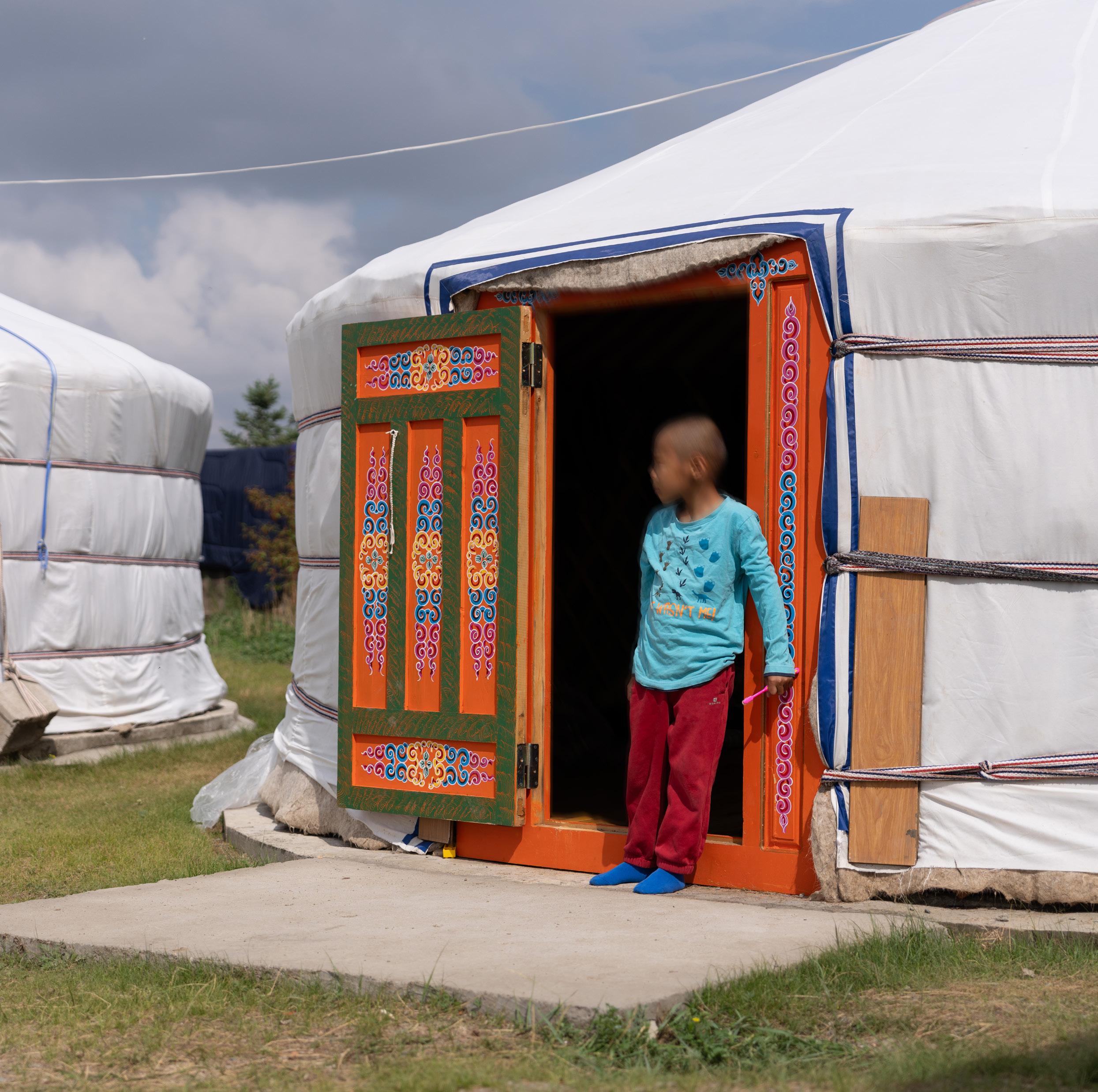Project Booklet 2024





PO Box 1668
North Sydney NSW 2059
info@catholicmission.org.au
1800 257 296
@catholicmission
@catholicmission
@catholicmissionTV catholicmission.org.au
Front cover image: Chuluunbaatar, a regular visitor to the House of Mercy, Mongolia
Back cover image: A child from the Caring Center, outside a ger - traditional Mongolian housing, during summer school holidays activites program. Their face has been blurred in accordance with Child Protection Policy.
Editor: Bridget Barber
Photos: Simone Medri, Catholic Mission partners
Design: Smarta By Design
Printed by: CTRL Print Group
Names of people under 18 have been changed.
Catholic Mission acknowledges that we live and work on the land of Australia’s First Peoples. We pay our respect to the ever- present spirituality of Elders past and present.
This publication may include images of deceased persons.
This booklet is printed on Sumo Laser 100 gsm FSC. FSC certified paper uses pulp sourced from responsibly managed forests and is made with elemental chlorine free pulps.

I am delighted to introduce Catholic Mission’s 2024 Project Booklet.
To begin, I echo the Holy Father’s World Mission Sunday message: “The Gospel calls everyone to the divine banquet, marked by joy, sharing, justice and fraternity”. Your support for our work of mission around the world is a participation in the sharing and fraternity that reflects the divine banquet.
Our focus for this year is the fledgling Church in Mongolia with three new projects laid out for you within these pages. As well, there is a snapshot of other projects with our various local Church partners around the world.
There is exciting news on our unique mission-inspired approach to Impact Investing which I encourage you to learn more about on pages 18-21.
May I take this opportunity to thank you for your ongoing generous material and prayerful support. For those who are joining us for the first time this year, welcome, and I would like to extend a personal invitation to you, to join us in the banquet that is our work in 2024.
Fr Brian Lucas, National Director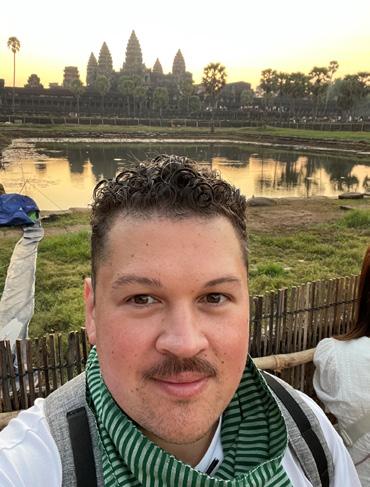
I was fortunate to travel to Cambodia recently, witnessing firsthand the life-changing difference that has been made for so many in need through Catholic Mission’s work - all thanks to the prayers and generosity of our wonderful supporters like you.
Because of your support, Catholic Mission is able to partner with the Church and missionaries around the world as they address real and ever-present challenges. You can read about examples of their inspirational work on the following pages. Your generosity allows us and our partners to go forth an invite everyone to the banquet, and for that I thank you.
Matthew Gibson, Philanthropy Manager© Copyright Catholic Mission 2024 ABN 52 945 927 066
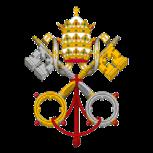

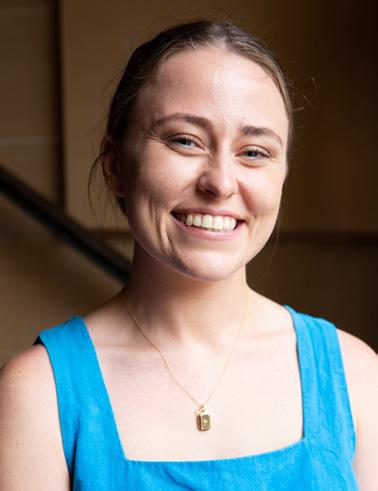
Welcome to another year of Catholic Mission projects. I truly hope you are travelling well this 2024. This year’s theme of ‘Go and invite everyone to the banquet’ is timely. Society is divided by so many things, perhaps if we each reach out - in whatever way we can - to one person who may not typically sit at our table, we can take the steps towards a more unified world.
The Programs Team have been hard at work putting this concept into practice, visiting project partners around the world, discussing future plans, and collaborating to build local capacity. The following projects are a snapshot of the work we support, and I hope you find inspiration in them.
Bridget Barber, Communications Officer (Programs)

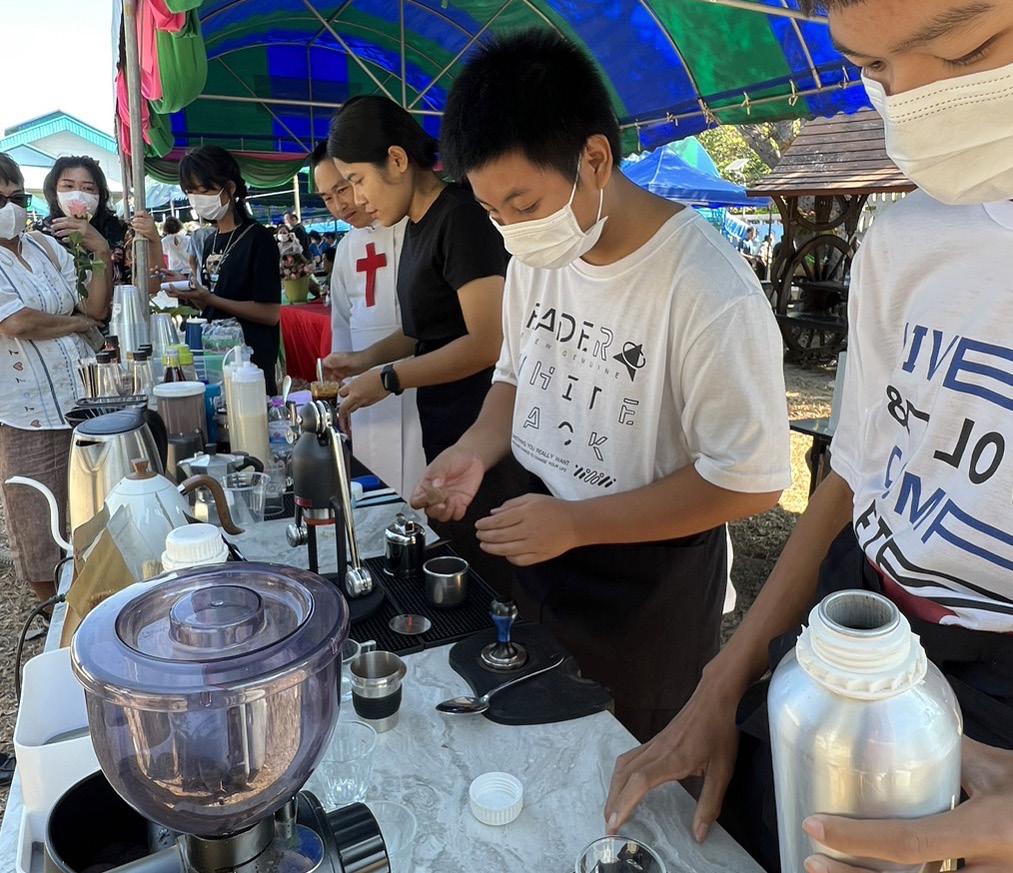

Catholic Mission is the Australian agency of the Pontifical Mission Societies (PMS). We are part of an international Papal network committed to Mission around the world.
Assigned to Catholic Mission through the Vatican’s Universal Solidarity Fund (USF), dioceses and religious congregations around the world can apply to the USF to receive support. Projects are grouped as follows:
Founded by Pauline Jaricot in 1822, our work with communities funds the day-to-day running of local parishes and dioceses. These projects support the young Church through subsidising construction, healthcare, and pastoral services, while also providing lay catechists with resources and compensation.
Founded by Bishop Charles de Forbin-Janson in 1843, our work with children seeks to ensure youth all over the world access the care they deserve. These projects include supporting schools, rehabilitation centres, health and nutrition programs, and care for pregnant mothers.
Founded by Jeanne Bigard in 1889, our work with Church leaders supports the future of religious life around the world. Many of these projects work with seminarians and novices. These emerging leaders will walk hand-in-hand with their communities, offering guidance and advocating for those in need.
These partnerships are formed either through our work within the PMS, or through a missionary reaching out to us directly.
We aim to build local capacity and address immediate needs, supporting missionaries who need assistance in overcoming challenges in their community.



It can all be summed up in those words of Jesus ‘I was hungry and you gave me food. I was thirsty and you gave me drink’. In those words, the Lord gives us the criterion for recognising his presence in our world...”
Building upon the success of our Vatican and direct allocations, Impact Investing focuses on income generation, sustainability, and long-term impact. Your gift to our Impact Investing Program is sown into a budding income-generating project for a period of time. As the project earns revenue and becomes more sustainable, your gift is reinvested in yet another new or growing, life-changing project. For more information on Impact Investing please see pages 18-21.
The Regional Mission Development Office (RMDO) in Phnom Penh, Cambodia, is a hub for Catholic Mission’s work across Asia. The office was established in 2019 to assist the wider organisation in engaging with project partners to deliver life-giving projects, providing technical assistance at the local level, and building capacity in mission development across the region.
Based on its geographic location, the RMDO is ideally positioned for Catholic Mission staff to travel swiftly across Asia to visit partners, offering ongoing support and technical assistance, and monitoring project progress. This provides access to projects we would not have knowledge of otherwise, which occurred during the recent pandemic with the RMDO responding to local needs as they arose, providing vital support.
Staffed by a local Khmer employees, the RMDO provides ongoing and regular training for local and international groups and are key in building the capacity of project partners across Asia. Additionally, the office provides a hub for Catholic Mission Immersions to Cambodia.
The RMDO ultimately allows Catholic Mission to build trust and meaningfully engage with our partners in Asia and around the world.
As part of our ongoing commitment to supporting mission in remote and rural parishes and dioceses, Catholic Mission continues to provide financial support to communities in Australia in consultation with local Bishops and missionaries on the ground. Currently, projects are funded in the dioceses of Geraldton, Port Pirie, Wilcannia-Forbes, Townsville, and Darwin. Catholic Mission has been supporting projects in Australia for 186 years.
Project location: Ulaanbaatar, Mongolia | Project code: MNPT-1200085 | Funding needed: AUD$837,500*

Language:
Khalkha Mongolian
Capital:
Ulaanbaatar
Population: 3.348 million
Currency:
Mongolian Tugrik

Scan the QR code to learn more about this project.
Mongolia, located in East Asia, is landlocked between China and Russia. The country’s capital, Ulaanbaatar, is home to approximately half of the population. Many families live in financially vulnerable situations and cannot afford access to education. Increasing education and employment opportunities is a means for people in need to break the cycle of poverty.
The Salesian Fathers of Don Bosco, seeing the needs of their community for qualified workers, established the Don Bosco Industrial Training Skills Center (DBITSC) in 2001. Many students come from poor and lowincome families. Out of 144 students enrolled in 2022, 29 students came from families experiencing poverty. The school keeps tuition fees low, however this places significant strain on the schools resources.
The DBITSC offers five major courses, including auto-mechanics, welding, industrial sewing, plumbing, and office administration. All students are required to study computer literacy and English.
A new department is being created and an electrical course will be implemented through this project. This course is being developed in response to a need for qualified electricians in companies in Mongolia.

In 2016, Fr Paul Leung Kon Chiu SBD was installed as the new Delegate of Mongolia and Rector of the Mary Help of Christians community of Ulaanbaatar.
Fr Paul comes from the Province of Hong Kong. He joined the Salesian Congregation in 1984 and was ordained priest in 1992. As a missionary in Mongolia since 2006, he has served in many communities. He was the Rector of the Dominic Savio Community Ulaanbaatar for two years, then
Ten years ago, we could already see English language skills and computer proficiency would be important in the labour market... so we offered these courses to the young people. Now, even young workers join our program for advanced studies.”
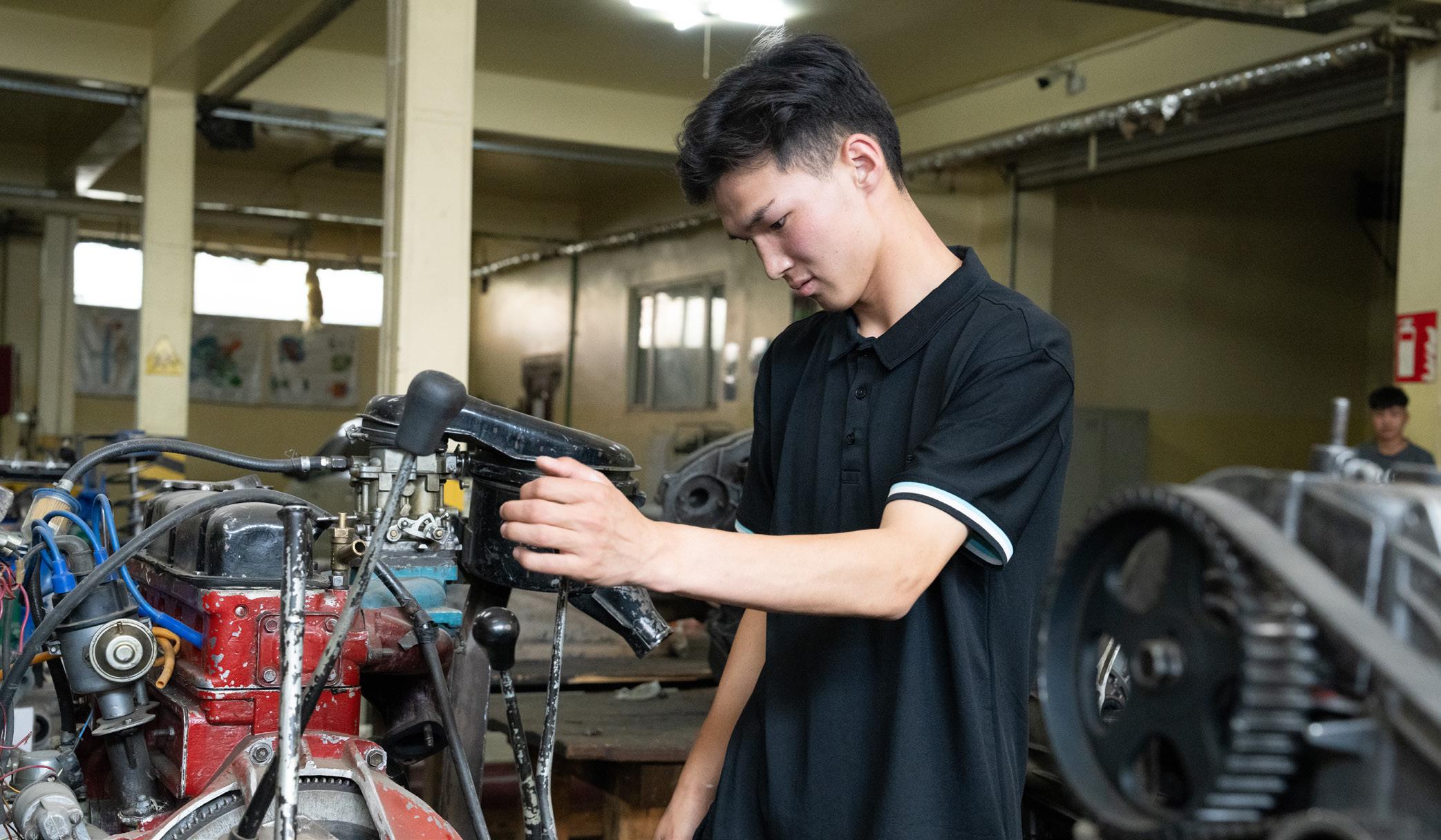
Fr Paul shared the needs he sees in his community:
The professions we need [in Mongolia] are engineers and technicians in railway construction, oil production, renewable energy, mining processing, transportation and logistics, nanotechnology, information technology and industrial automation engineering.”
Your support can help:
• Repair the mechanic workshop classroom for students to have a safe learning environment.
• Provide training material for students to learn up-to-date vehicle maintenance and repair.
• Fit out the repaired mechanic workshop classroom with innovative and modern equipment.

**Learn
Project location: Ulaanbaatar, Mongolia | Project code: MNPT-1200088 | Funding needed: AUD $828,170*

Language:
Khalkha Mongolian
Capital:
Ulaanbaatar
Population: 3.348 million
Currency:
Mongolian Tugrik

Scan the QR code to learn more about this project.
Ulaanbaatar is a popular destination for immigrants from rural areas, who are drawn to the opportunities the city provides. Unfortunately, income inequality is reflected in socioeconomic indicators such as significant housing disparities which results in a high rates of homelessness across the city.
Cardinal Giorgio Marengo created the House of Mercy to be a centre for the people who live on the margins to seek refuge, creating a shelter for vulnerable people to gather in care and love, feeling safe, and at peace. It provides access to a range of services including first aid, free laundry and bathing services, and food and clothing if needed.
This project aims to renovate and outfit the current facilities so they it can cater to the growing number of people seeking a safe haven.
On the final day of his Apostolic Journey in Mongolia in 2023, Pope Francis visited and blessed the House of Mercy, acknowledging the missionary effort on the ground as being more than evangelical, but peopleorientated for the greater good.
This House of Mercy is a tangible expression of the Church’s care for others.

Born in Italy, Cardinal Giorgio Marengo was ordained a priest in 2001. He was a parish priest in Arvaiheer, Mongolia until 2003 when he was assigned as the country’s first IMC priest (The Institute of Consolata Missionaries). In 2020, he was elevated to the role of Apostolic Prefect of Ulaanbaatar and in 2022, he was named Cardinal.
Due to its small size (0.4% of the population identify as Catholic), Cardinal Marengo believes the Church should be involved in interreligious and inter-cultural dialogue.
Cardinal Marengo has played a key role in giving much-needed support to the local communities.
[the House is] a kind of sea port, in which those who are really struggling with life know that they will find someone who will listen to them and try to give answers to their difficulties.”

As the Holy Father said on his recent Apostolic journey to the House of Mercy in 2023:
• Realise the work which Pope Francis’ blessed during his visit by providing vital renovations to the facilities to ensure this safe haven can continue running for the vulnerable people in Mongolia.
• Cover labour costs, demolition, installation, transport, and a range of other services needed to renovate the current facilities.
This House of Mercy is meant to be the point of reference for a variety of charitable works, hands outstretched towards our brothers and sisters struggling to navigate life’s problems. A safe haven, in other words, where people can find a listening ear and an understanding heart.” How
Cover
Contribution to partner capacity building support**

Project location: Ulaanbaatar, Mongolia | Project code: MNCT- 2200482 | Funding needed: AUD $279,300*

Language:
Khalkha Mongolian
Capital:
Ulaanbaatar
Population:
3.348 million
Currency:
Mongolian Tugrik

Scan the QR code to learn more about this project.
Established in 2003, the Don Bosco Caring Center (DBCC) was created to provide vulnerable children with a loving and safe environment where they can access education and ongoing support.
Most children come to the Center from challenging situations including breakdowns in family units, being orphaned or abandoned, and family violence. Currently, there are 24 children staying at DBCC ranging from the ages of 5 to 19 years old.
Children staying at DBCC need educational support as some cannot attend school due to a variety of barriers. The staff run development lessons to support all the children in ways that allow them to learn at their own pace. There are 9 staff members at DBCC - a manager, a psychologist, a social worker, four teachers, a cleaner, and a cook.
The DBCC operates primarily through donations. Due to ongoing financial challenges around the world, these donations have been decreasing rapidly. However, staff salaries and the cost of daily basic needs of children cannot be reduced any further or put on hold.

Born in Vietnam, Brother Andrew Tran Le Phuong SDB joined the Salesian Brothers in 1999.
In 2014, Br Andrew became one of the first Salesian missionaries at the newly established Catholic Community in Mongolia. Finding his place, he started to restore equipment and train people in Ulaanbaatar. Dedicated to enhancing education and health services, Br Andrew prioritises the needs of the people most vulnerable.
Today, Br Andrew oversees the finances of the Prefecture, is managing the House of Mercy project, and is the Director of the Caring Center.
It is important to me to give children a home (family) again. Most of them don’t have a real home (family) which all children deserve to have...”

The social worker at the center, Namdag, shares her motivation around supporting children:
Only when the child is seen as the most valuable person, [they] become a better person, opens up [their] inner worries, and becomes more relaxed.”
• Cover the running costs of the DBCC including staff salaries, electricity, heating, and council services.
• Pay for daily developmental lessons for the children, which can include basketball, volleyball, and soccer lessons, and school for those old enough to attend.
• Provide nutritious food for children daily.
• Provide children with the supplies they need to learn including uniforms, winter clothes to suit the cold climate, school bags, books, and stationery.

Project location: Rayong, Thailand | Project code: THCT-1200098 | Funding needed: AUD $417,179*

Language:
Thai
Capital:
Bangkok
Population: 71.6 million
Currency:
Thai Baht

Scan the QR code to learn more about this project.
Located in Rayong, two hours south-east of Bangkok, the Camillian Social Centre (CSC), also known as the Independent Living Centre, is a relief hub for people living with HIV/AIDS. Since 1999, the Centre has been focused on helping internally displaced children living with and affected by HIV/AIDS. These vulnerable children arrive at the CSC for a variety of reasons such as their parents have passed away from HIV/AIDS, they have been rejected by their family, or their family cannot financially support the care they need. They are alone and subject to social stigma in their communities. The CSC supports these children in accessing antiretroviral medicine and helps them to gain an education.
Staff are concerned about the longevity of the Centre and are looking to achieve financial sustainability. With collaboration and support from Catholic Mission, this project seeks build a bridge of hope for people with HIV by establishing a social enterprise café, soccer field, a barber shop, and an organic farm. While generating income, this project will also develop residents life skills, reducing dependency and enhancing their sense of dignity.

*For
Fr Joseph Piyasak Wongwai is the Director of the CSC and will oversee this project.
He has been a part of the St. Camillius Foundation of Thailand since 2007. Over the last 17 years he has worked closely with those in his community facing health challenges.
Fr Joseph was a Director at the St. Camillo Hospital and Sithida Home in Ratchaburi Province until June 2023, when he moved to Rayong to work at CSC.
Our children have secure roofs over their heads, nutritious meals on their plates, access to medical care, and the resources to pursue their dreams.”

Hope will be passed down from one generation to the next generations as a circle...a stable bridge for the future of children living with HIV and affected by AIDS.”
• Construct the new facilities at the CSC including setting up a café, soccer field, barber shop, and organic farm.
• Provide CSC with a reliable and sustainable form of income once construction is complete and the facilities open to the public.
• Provide teenagers with and/or impacted by HIV/AIDS to access practical training and engagement in the community, resulting in a reduction of stigma and restoration of dignity.
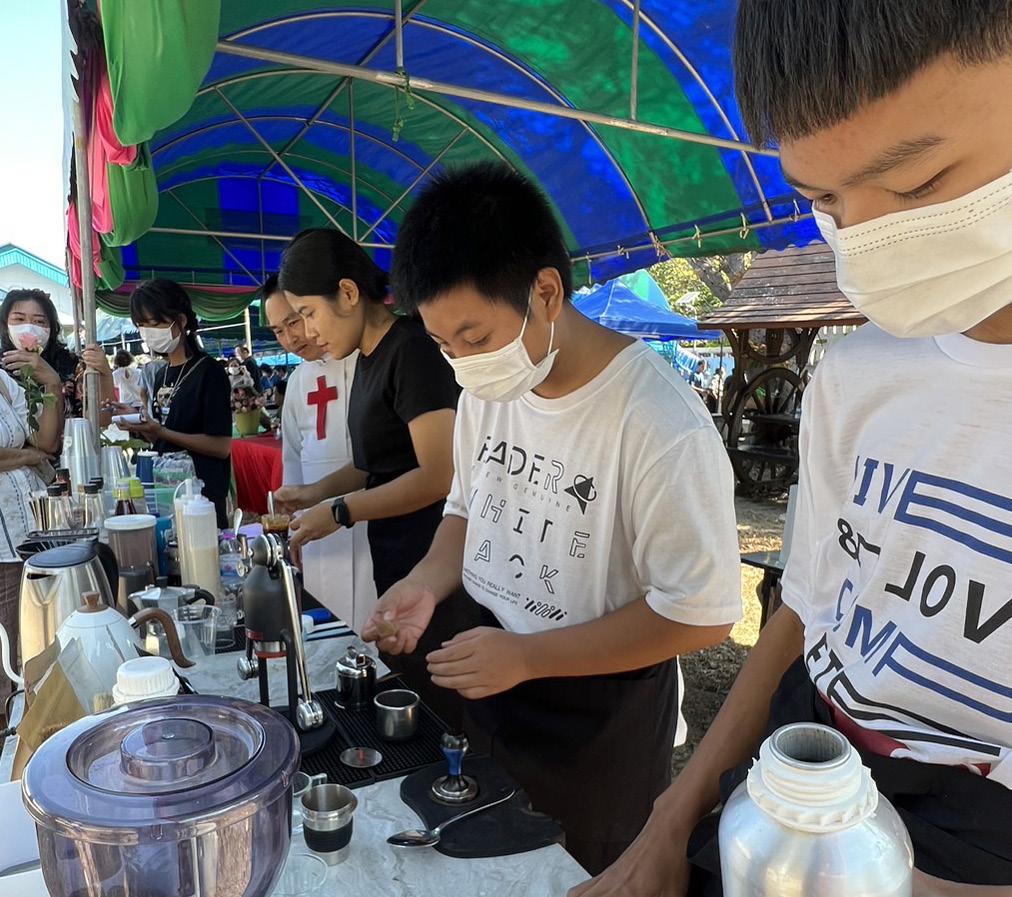
Project location: Meki, Ethiopia | Project code: ETPT-1200090 | Funding needed: AUD$150,376*

Languages:
Amharic, Tigrigna, Afar, Somali, Oromo
Capital:
Addis Ababa
Population: 120.3 million
Currency: Ethiopian Birr

Scan the QR code to learn more about this project.
For many women in Ethiopia, employment opportunities are very limited due to a lack of access to education. The Kidist Mariam Pastoral Centre (KMPC) is working to change this.
Located in the Apostolic Vicariate of Meki, the KMPC offers vocational skill training courses in food preparation, tailoring, and hairdressing to empower women to create their own livelihoods, earn income, and manage their own resources.
Phase three of Catholic Mission’s partnership with the KMPC, stems from a need for further support during the ongoing civil conflict in the country. Over the years, the Amharic, Tigrayan, and Oromo cultural groups have been caught in struggle for political power. In late 2020, a civil conflict broke out. The region of Meki has been caught in the crossfire. As a result, the KMPC has struggled to generate a sustainable income and requires additional support as the conflict continues to gradually ease.
This project seeks to support the KMPC through funding staff salaries and covering the running cost of the food preparation course.
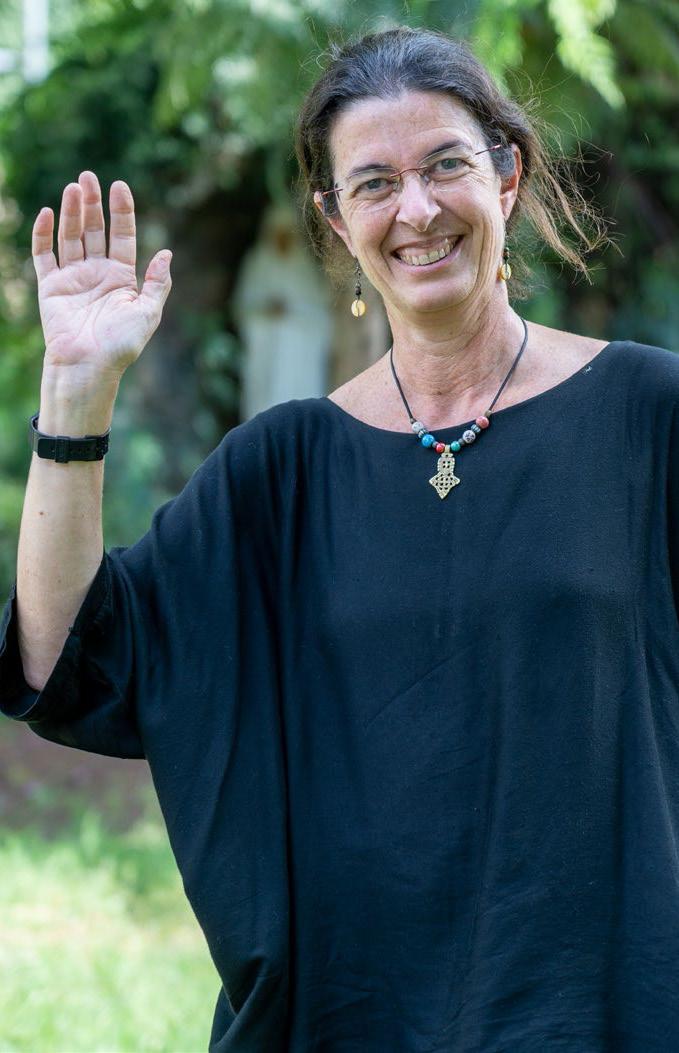
Born in Barcelona, María José Morales Jurado is the Director of KMPC. She has been a member of the missionary Community of Saint Paul since 1988 and moved to Ethiopia in 2013.
María is currently responsible for pastoral and development projects with youth and women in the Apostolic Vicariate of Meki.
She established the Centre to provide young women with the opportunity to learn new skills and a trade, leading to their financial independence.
We need to stand together, to be hope for the hopeless, we need to tell them we are still here, and we need your support to ensure we can continue our work for the people of Meki...”

I receive a very big opportunity studying at KMPC, and in return I am giving these young students opportunities not to leave their school as I did.”
Your support can help:
• Cover the cost of food products and gas cylinders used for running the food preparation courses at KMPC.
• Provide 29 staff members with fair wages. Staff include guards, cleaners, teachers, assistants, an accountant, a secretary and a manager.
• Equip women with vocational skills and work experience through courses of their choice including hospitality, hairdressing, and tailoring.
How you can make a difference
One year of food products and resources for food preparation course
One average yearly staff salary (29 total)
One month of food products and resources for food preparation course
Contribution to partner capacity building support**

Project location: Pakistan | Project code: PKGT-1200086 | Funding needed: AUD $536,540*

Languages:
Urdu, English
Capital: Islamabad
Population: 231.4 million
Currency: Pakistani Rupee

Scan the QR code to learn more about this project.
Established in 1958, St Elizabeth is an 80-bed hospital located in Hyderabad, in south-east Pakistan. It seeks to serve the community by providing healthcare to people of all faiths as well as training nurses and midwives to ensure expectant mothers and their children are well cared for.
Each year, St Elizabeth provides free healthcare to over 50,000 people living in poverty in rural Sindh through its mobile medical outreach program. Through working in the community, it become apparent ther is a significant need for an orthopaedic surgery.
Additionally, flooding of the city in 2010 caused significant damage to the ground floor impacting the power generator, operating theatres, and x-ray clinic. While the Hospital has continued to recover from the damage, it needs further renovations.
St Elizabeth Hospital also offers two-year nurse and midwifery training program onsite. The current program is limited to 20 people a year due to classroom size restrictions. This project will build a second storey above the current classrooms, allowing more students to attend.
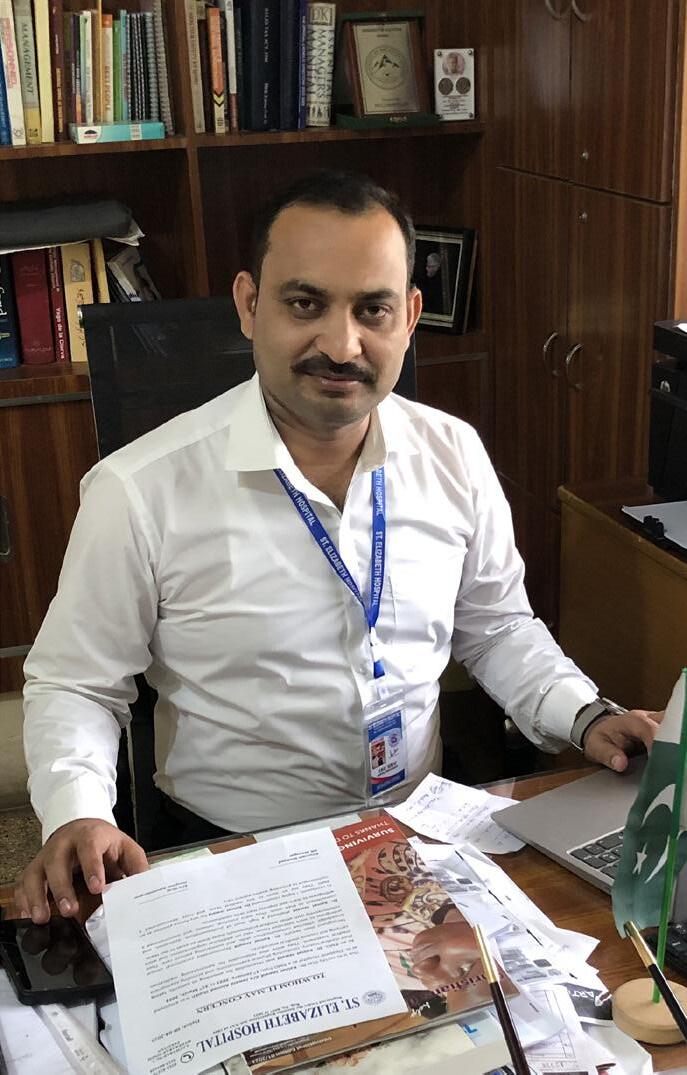
Eric Siraj has been the Hospital Administrator at St Elizabeth for five years, however he has worked there much longer.
He joined St Elizabeth Hospital in 2007 as a student nurse and completed his qualifications in 2012, with a specialisation in pediatrics.
In 2015, he became the Coordinator of the Hospital’s Mobile Medical Outreach Program. Three years later, he became the Purchasing Officer of the Hospital. In 2019, was appointed as Hospital manager, and soon after, Hospital Administrator.
[We aim] to provide the best possible quality healthcare at the lowest possible cost with a preferential option for those in greatest need.”
Eric

orthopaedic surgery which they have never been able to access or afford”
• Build an operating theatre designated solely for orthopaedic surgery, with an additional nursing and doctor duty room.
• Renovate current facilities into 10 orthopaedic post-surgical rooms with attached bathrooms on the existing first floor building of the outpatient department at the Hospital.
• Renovate and expand the nursing training facility to expand the current nurse training program.
• Purchase an additional generator to ensure equipment can always be available for use.

As global challenges continue to impact the universal Church, Catholic Mission seeks to assist local Churches in becoming more self-sustainable, enabling them to readily respond to challenges faced by their communities. Through Impact Investing, you can support long-term change for communities around the world. As Pope Francis calls for unity in the Church, we are compelled to heed this call and support the people most in need.
Catholic Mission’s Impact Investing initiative aims to build upon the success of projects we support around the world. Our unique model for Impact Investing seeks to replicate the loaves and fish parable, with such projects focused on generating reliable income streams through social enterprise, placing long-term sustainability and a lasting generational impact at the forefront of the partner’s goals. This focus can lead to more people being supported, turning our loaves and fish from some into many. We call this mission-led development.
Using the objectives set out by PMS, Catholic Mission has used modern development research to form a best practice model that allows both mission and development to work hand-in-hand. Mission can provide a multifaceted approach to development. Connecting through faith allows us to reach communities we typically would not be able to support. Using a mission development lens, we can combine development practice with the spreading of God’s word through Gospel teachings, providing pastoral care, and supporting missionaries around the world through the building of churches, supporting catechist programs and training seminarians.
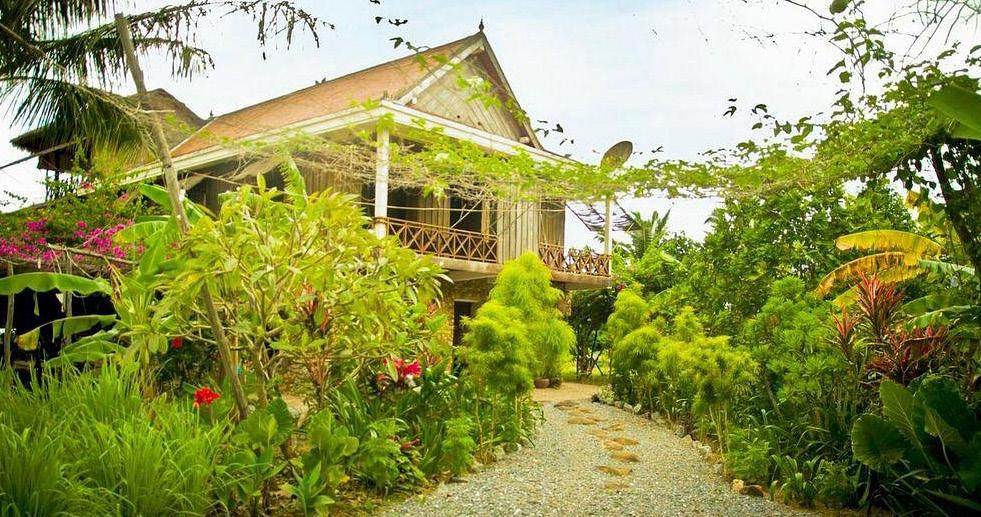
Impact Investing at its simplest is a perpetual project distribution fund, which can be used, then reused to support other projects. An initial investment is sent to the project partner, which is then reused, as the project begins to generate profit. This repayment is subsequently used to support other Impact Investing projects. This method allows funds to be maximised and help support significantly more people, leading to a loaves and fish scenario where $1.00 becomes $1.25, which increases to $1.50 and so on. The gift grows over time, leading to significant improvements in the community over an extended period.

Catholic Mission’s Impact Investing program is now at a pivotal stage in its establishment, with the first project of its kind for our organisation – Impact Investing at Phnom Voah, Cambodia – moving to the next phase of implementation: the original project is now at a stage where funds can be used to support other projects in the area.
The Phnom Voah enterprise is an excellent model for future Catholic Mission’s Impact Investing projects in the region and further abroad. With great success in produce sales on the farm, an increasing tourism industry generating additional income, and positive engagement in the community, the Phnom Voah Impact Investing projects stand as a testament to how these types of projects can exceed expectations. For more information on current Impact Investing projects see the following pages.
*For more information on these stages see page 23.
Project location: Cambodia | Project codes: CBPT-1200081 | Total funding needed: AUD$812,561*
Since the development and implementation of the Phnom Voah Farming project in 2014, Catholic Mission has seen the growth of a self-sustaining organic life-giving farm. Its primary goal has been to evangelise through development, creating a safe, nurturing space for families to visit, students to learn, and community members to gain employment.
Phnom Voah Farm and St Francis Technical High School are located several hours south of Phnom Penh. Bishop Olivier Schmitthaeusler, Apostolic Vicar of Phnom Penh, opened the farm and onsite restaurant to provide work for people from disadvantaged backgrounds in his community and give students from St Francis a place to practice what they learn in class. The farm has excelled in production with a wide range of fruits, vegetables, and livestock. It has employed over 20 community members and has provided vital practical experience opportunities for 178 agriculture students who have studied at St Francis.

Before Impact Investing was introduced at Phnom Voah, it generated USD$129,024.90 from 2019 to 2021. In 2022, when the farm began its impact investing journey with Catholic Mission, the trend of increasing income continued with an annual revenue of USD$137,033.74 generated through sales of produce, and visitors to the farm and restaurant. This was made up of USD$61,171.70 produced through produce sales and USD$75,862.04 generated through ecotourism at the farm, including bamboo train tours.
The initial investment of USD$400,000 has now been repaid and is funding another impact investing project in the area - the Phnom Voah Training Centre and Hotel.


Project location: Ethiopia | Project codes: ETPT-1200065 | Total funding needed: AUD$825,071 *
Addis Ababa, the capital of Ethiopia, is a hub of activity with greater access to opportunities than rural areas, however, it is also impacted by poverty, unemployment, HIV/AIDS, and a lack of trained and skilled professionals. The provision of education and jobs leads to greater income opportunities and is a powerful tool in alleviating these challenges. The Lideta Catholic Cathedral School (LCCS) aspires to provide quality education to youth in the community, with the aim to support children across the country regardless of their background.
To broaden its impact, LCCS has partnered with Catholic Mission to create a means of sustainably generating income which can be used for more student scholarships.

A small parcel of land, owned by the school and adjacent to the LCCS campus now holds a multi-level commercial building. Local businesses have begun renting out spaces in the building. So far a total of AUD$74,617.84 has been generated. These funds will be used to support the transformative scholarship program at LCCS.
Since construction was completed in December 2023, 32 shops have been rented out with eight vacant. Currently, the monthly income for the commercial building is AUD$25,010.33. Based on previous Catholic Mission project budgets for the scholarship program, AUD$40,000 can cover 84 one-year scholarships.

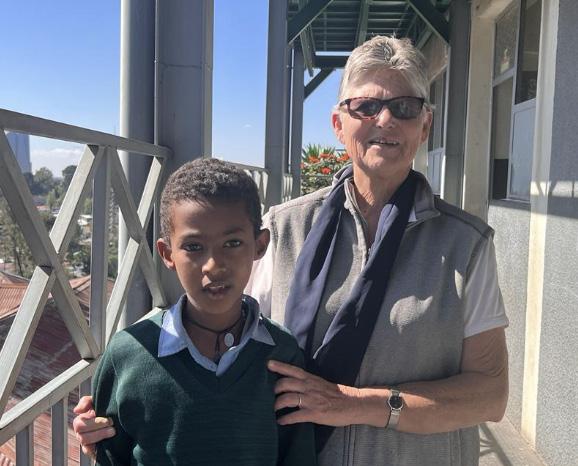
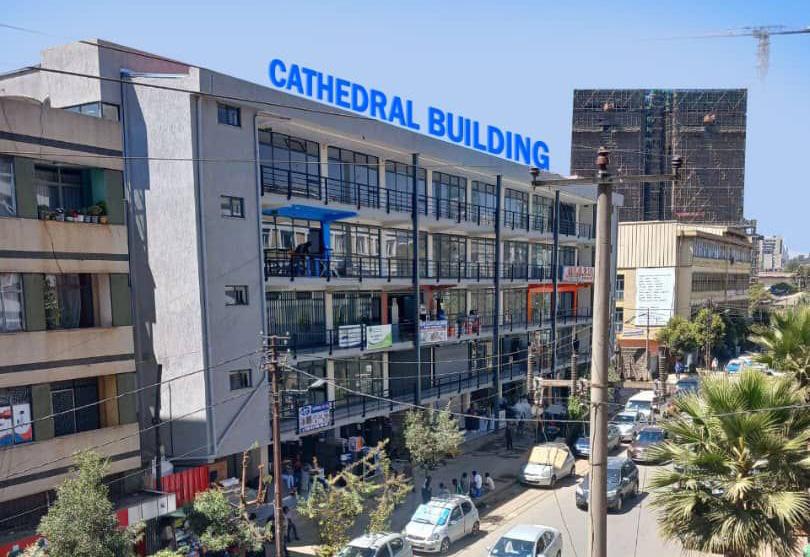
Erol*, a twelve-year-old student at LCCS, lives with his mother, Beth*, who earns a living by selling vegetables and goods in the market. Despite her hard work, Beth faced challenges in paying tuition for her children and managing household expenses. Thanks to your generous support and prayers, Erol, along with 159 other children, has been able to continue his education at LCCS, setting him on a path to a promising future.
Both of Erol’s older brothers, who also received scholarships, have made significant strides in their careers as a medical doctor and an architect. They now give back to their family, helping to reduce the financial burden on their mother.
The 17 United Nations Sustainable Development Goals (SDGs) are a universally shared blueprint for peace and prosperity for people and the planet, now and into the future. Our foundational values of communication, trust, faith, context, future, and capacity, inform the way we interact with project partners and develop new relationships.
Below are some of the ways in which Catholic Mission is working towards the SDGs:
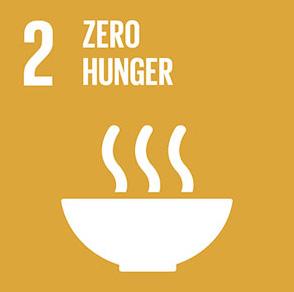

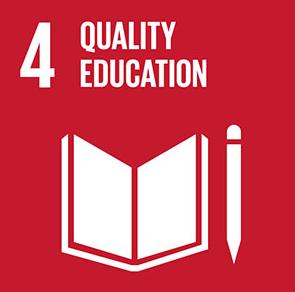

This goal seeks to end hunger, achieve food security and improve nutrition and promote sustainable agriculture. Food insecurity is a lack of regular access to enough safe and nutritious food for normal growth and development and an active and healthy life. This may be due to unavailability of food and/or lack of resources to obtain food. The House of Mercy is helping to address this by providing regular access to food for the homeless people of Ulaanbaatar, Mongolia.
Everyone has the right to live without needless suffering from preventable diseases and premature death. On top of ensuring physical health is adequate, it is important to look at the social factors which can be affected by poor health. The Bridge of Hope project will do both by generating income for ongoing care for people impacted by HIV/AIDS and providing them with access to a variety of activities for full and joy-filled lives.
Access to education is associated with better health and quality of life outcomes for people of all ages. This is why many Catholic Mission projects have an educational element - the vocational training centres in Mongolia and Ethiopia provide students with employable skills, the Caring Centre helps children develop socially and cognitively, and St Elizabeth Hospital is providing nursing and midwifery training to support more patients.
Inequality can be present in many ways, the first being financial and/or economic disadvantage and the second is a lack of opportunity. Catholic Social Teaching understands that all people should have access to basic needs such as food, shelter, clothing, and education. Access to these needs allows everyone to participate in society, care for our shared home, contribute to the common good, and ultimately live with dignity. Catholic Mission and our partners around the world work hard to make this a reality.
Collaborating with our partners to determine how our organisation can add value to the goals they hope to achieve establishes a participatory process. Our team often engages in informal conversations with different members of the local community to build mutually collaborative relationships.
We work in solidarity to create a plan that helps build capacity.
Our aim in this phase is to clarify the partner’s goals, determine what resources are needed, and create an achievable budget. By unpacking project activities and outcomes we seek to ensure each project will benefit the community and is not limited to a stakeholder’s personal desire.
We aim to assist our partners in creating sustainable change.
Throughout implementation we work to keep the partner accountable. We assist them in conflict resolution and problem solving, offering technical advice and moral support. We also create a vital link between our donors and the project(s) they support.
Each experience is tailored to fit with local needs. We are a non-judgemental, listening ear. When things are challenging we provide positive encouragement to continue on.
This phase relies on transparency in success as well as shortcomings. Transparency ensures we and our partners do not repeat mistakes and find the right balance. Catholic Mission’s Programs Team make sure to read between the lines. If the project is not achieving what it set out to, we need to adjust and provide alternatives to the partner to continue to deliver on a quality project.
Relying on trust and previous experience with partners, we maintain constant dialogue to ensure transparency and accountability.
We reflect with the partner on what they have achieved, what unexpected outcomes arose, and what the future could look like for our partnership.
We strive to not only support our partners through their project but also at a broader level in wider operations.
At the end of this phase we review how, and at what capacity, we can support them in the future.
